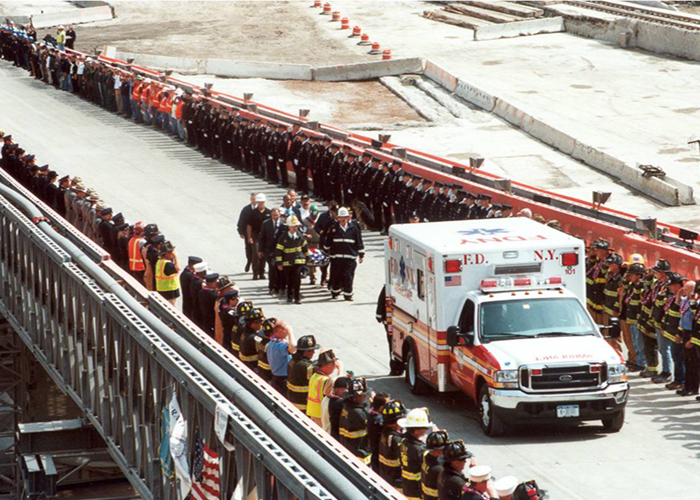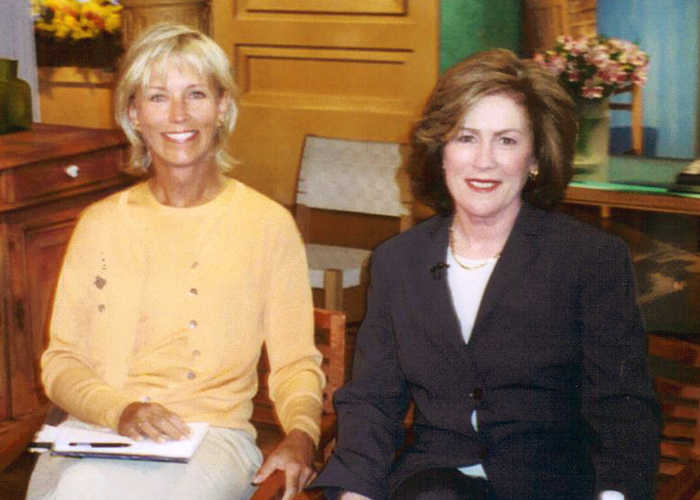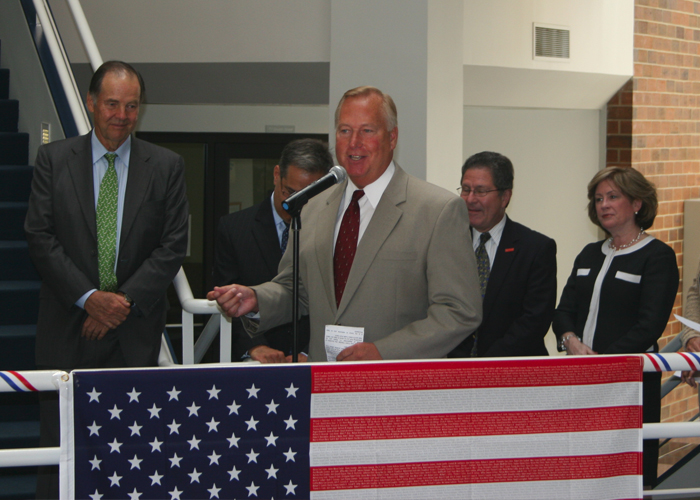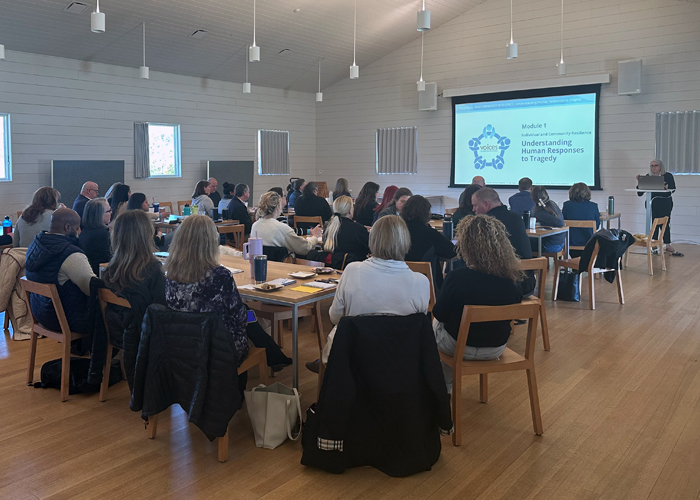History

From 9/11 to today, VOICES has been helping families and communities heal after tragedy. Our mission is to provide long-term support and resources that promote mental health care and wellness, for victims’ families, responders, survivors, and families of those who have died of 9/11-related illnesses; and assist communities in preparing for and recovering from tragedy.
Most plans to assist those impacted by tragedy focus exclusively on the short-term response, essentially assuming that "time heals all wounds.” VOICES believes that this view is insufficient. Over time, victims lose support from friends, family, and the community. However, for many, the hard work of healing continues – which is why VOICES understands providing long-term support services is essential.
How VOICES Began

Voices of September 11th began informally in October 2001 when Mary Fetchet, a social worker who lost her 24-year-old son, Brad, and Beverly Eckert, an insurance executive who lost her husband, Sean Rooney, met at a gathering of Connecticut families. They soon recognized the challenges the families faced in obtaining accurate information and navigating complicated systems to identify resources and financial support.
Along with representatives of other 9/11 organizations, they met with government leaders. They learned about the plans for the Victim Compensation Fund, commemoration plans at the World Trade Center site, and the recovery of remains – sharing that information with the families.
In September 2002, a certificate of incorporation was filed. The first VOICES office opened in New Canaan, Connecticut in December 2002, to create a new paradigm in supplying services that provide continuity of care for those impacted by traumatic events.

The organization became a central clearinghouse of information to help navigate a myriad of issues and access resources – while advocating with other family members on behalf of those impacted. Most importantly, VOICES recognized that individuals impacted by traumatic events grieve differently, and in their own time, and some need more assistance than others. Social work practices permeate our work and the services we provide, with programs developed based on the ongoing assessments of the community’s evolving needs.
A satellite office was opened in New Brunswick, New Jersey on August 31, 2009, to provide assistance to the 9/11 community, including the families of New Jersey’s 706 victims and thousands of rescue workers and survivors.
Recognizing families impacted by tragedy live around the country and the world, in 2003, VOICES pioneered hosting weekly teleconference groups facilitated by social workers to connect peer-to-peer groups – family members, survivors, and responders – with each other. Since then, the work of the organization expanded to include:
- Distribution of information via emails, newsletters, and social media
- Advocacy on a wide range of issues relevant to the 9/11 community and other communities affected by tragedy
- In-person and teleconference support groups and focus groups
- Tip Sheets on Mass Violence, Traumatic Events, and Building Personal and Community Resilience
- Annual Remembrance Symposium in New York City on September 9 and 10
- 9/11 Living Memorial Project
- Publication of Preparing for After Resource Kit
- Support to local communities such as Oklahoma City, Charleston, Parkland Florida, and Sandy Hook
- Assisting thousands of survivors and responders in accessing medical and mental health treatment through the World Trade Center Health Program
- Anxiety and depression screenings
- Graduate, college, and high school interns participating in VOICES Internship Program
- Interfaith Services
Meeting the Evolving Needs of Individuals and Communities

Today, Voices Center for Resilience is equally committed to leveraging its expertise to assist all communities impacted by any tragedy by broadening its impact by enhancing efforts in support, education, and training. Our ongoing programs and support services promote mental health and build resilience. To further our educational initiatives, VOICES has expanded partnerships with like-minded organizations, including the Leadership in Counter-Terrorism Alumni Association (Linct-AA) and the International Network Supporting Victims of Terrorism and Mass Violence (INVICTM).
VOICES Digital Resource Library advances mental health studies, research, and resources to promote healing and community resilience. The Library shares expertise, evidence-informed resources, and research to enhance practice for professionals working in the field of mental health and emergency response. VOICES expanded its community engagement with its Preparedness Trainings – A Victim-Centered Approach to Prepare for, Respond to, and Recover from Tragedy. The in-person and virtual modules will amplify our impact by ensuring individuals and communities are better equipped to respond to tragedy of any type.
VOICES Milestones
As an internationally recognized non-profit, originally serving the 9/11 Community since 2001, VOICES history, accomplishments, and circle of impact have been well-documented. Click here to learn more about how the organization has grown to become a global model for community resilience.
